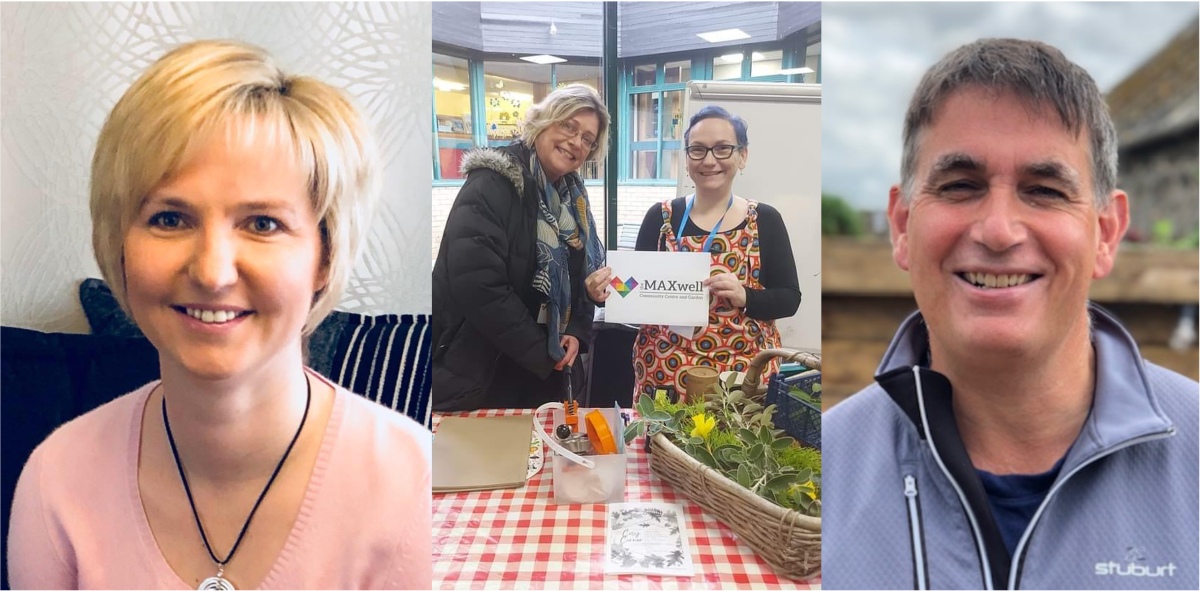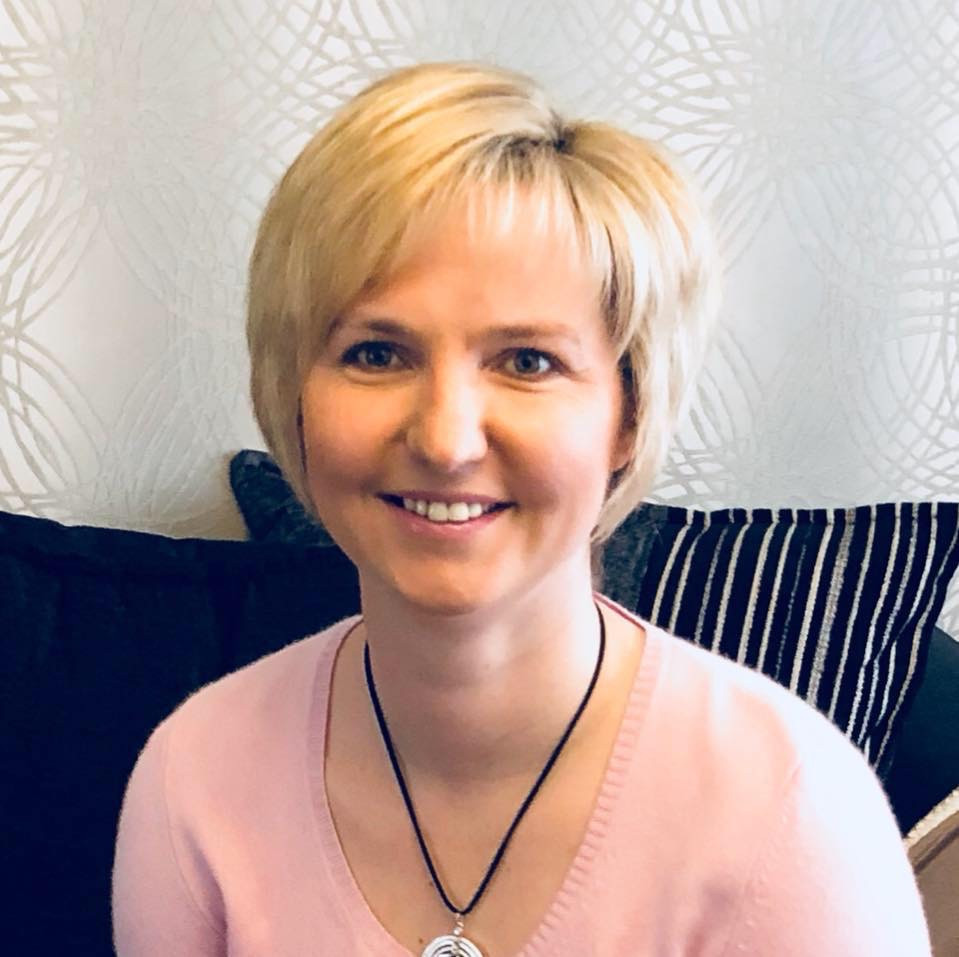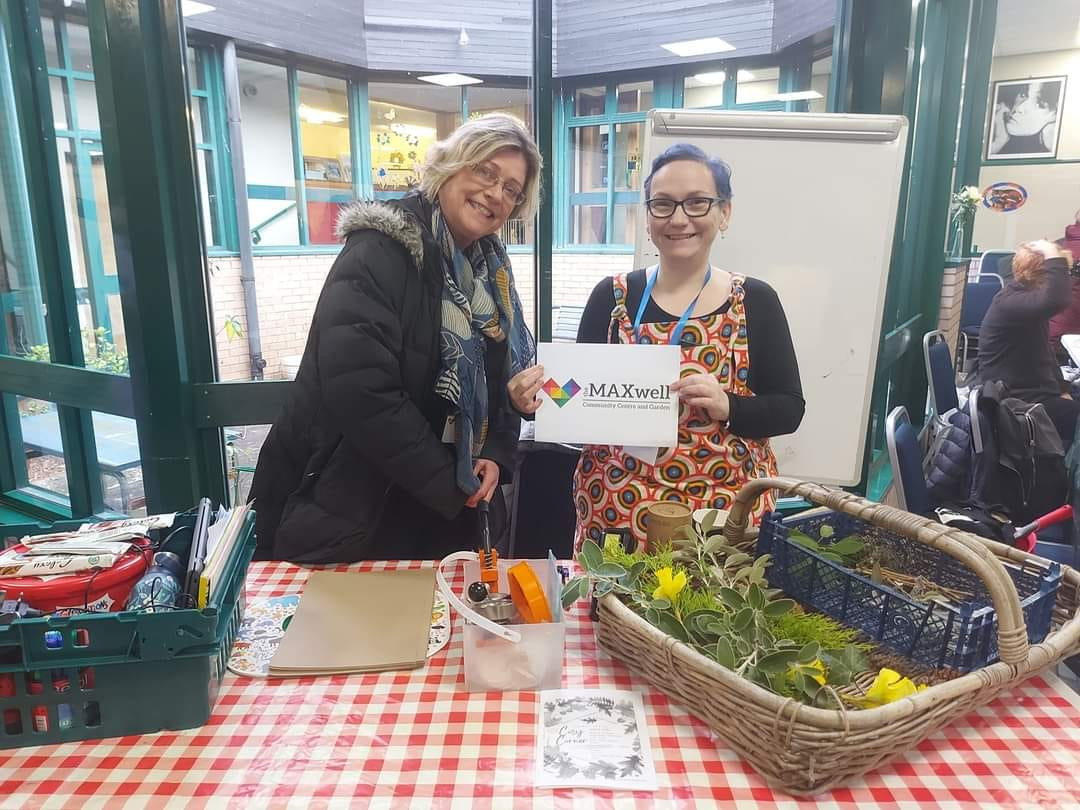
Agnese Carter, Poverty Engagement Worker for Aberdeenshire Council (left); Jenni Christieson, Support Worker at the Maxwell Centre in Dundee (center right); Colin Melville, Team Leader for Communities and Partnerships for Clackmannanshire’s Third Sector Interface (right)
We recently ran three Dignity Dialogues in different local authorities, aiming to co-investigate possible interventions for preventing and to respond to food insecurity. A key learning from community advisors (people with lived experience of accessing food banks, pantries and larders) was the importance of having a trusted staff member with a wealth of knowledge to support and direct people towards the right services, including financial advice, benefit checks, fuel support or providing vouchers.
Jenni, Colin and Agnese share aspects of their role, what works for them, key learnings of how to support people and their reflections on implementing the Dignity principles.

Agnese works as a Poverty Engagement Worker for Aberdeenshire Council. Her role focuses on tackling poverty and inequalities by raising awareness of lived experiences and creating engagement opportunities for lived experience participants. As a poverty engagement worker, Agnese collaborates closely with individuals to provide support according to their needs, building a relationship based on trust and reliability, fostering an environment of empowerment, dignity, respect, and being treated as an equal.
Valued and Able to Contribute: Individual strengths are emphasised in offering support, looking at what they can contribute. By highlighting their strengths, individuals can improve their confidence, especially during crisis situations when they are most vulnerable and confidence levels take a hit.
-- “We focus on their strengths and how we can build on that, rather than what they don’t have.”
Nourished and Supported: A warm handover when working with vulnerable community members offers more support beyond mere signposting. This approach is also based on individual need, so that those in need can receive personalised and compassionate support, while others who are looking for more direct help can be signposted towards the resources they need.
"Support provided with empowerment in mind helps people believe that they can achieve anything in life."
-- Agnese Carter

Jenni is a Support Worker at the Maxwell Centre in Dundee. The post was created 6 years ago, when the centre realised that individuals filling out forms and getting a voucher just wasn’t the solution. Jenni's role involves sitting down with individuals for a chat to find out what is going on and understanding the underlying issues contributing to food insecurity, whether it is an emergency crisis or an ongoing issue, before being signposted onto available support.
Able to Take Part in Community Life: The Maxwell Centre offers a wide range of activities open to everyone, not just food support for those experiencing food insecurity. From cooking classes, gardening sessions, toddler groups, arts and crafts to after-school programs, requests to new events are also being implemented, including photography walks, outdoor cooking groups, and adult learning opportunities. This inclusive environment fosters community participation and makes sure the centre is a place open and welcoming for all.
Supported in Early Intervention: Rather than having to schedule an appointment, Jenni’s drop-in sessions provide a more open, accessible and timely form of support. Jenni has become a known and trusted part of the community, and, through building trust and community, more people are coming in before reaching a crisis situation. Early intervention has led to food bank referrals going down by 30 to 40%!
"Remember that each person has a past and a future and deserves to feel valued and included in their community."
-- Jenni Christieson

Colin is the Team Leader for Communities and Partnerships for Clackmannanshire’s Third Sector Interface (TSI). TSIs are community-focused umbrella organisations that support charities, community organisations, volunteer groups, and local communities. Colin’s role involves making connections between organisations and facilitating partnerships between various groups to build effective networks and deliver comprehensive community services.
Colin’s work supports the dignity principles through joining the dots, establishing connections and providing funding to various projects who go on to support individuals, build confidence, bring communities together, learn from each other and share best practices. The staff and team are supportive, inclusive, and accessible through an open-door policy. A popular event are the community breakfasts, where guest speakers come in to talk, different groups are brought together for a learning opportunity, networking and sharing best practices, and to share a hot meal together.
Valued and Able to Contribute: using grants provided to support local initiatives and projects, one project helped build a polytunnel for a quadriplegic individual with a gardening background. This helped him to come out and integrate into the broader community, not only supporting individual needs but also highlighting his value and ability to contribute to the community.
"Having a supportive and informed team allows strong community and individual support to assist people in accessing services in a dignified and uncomplicated manner."
-- Colin Melville